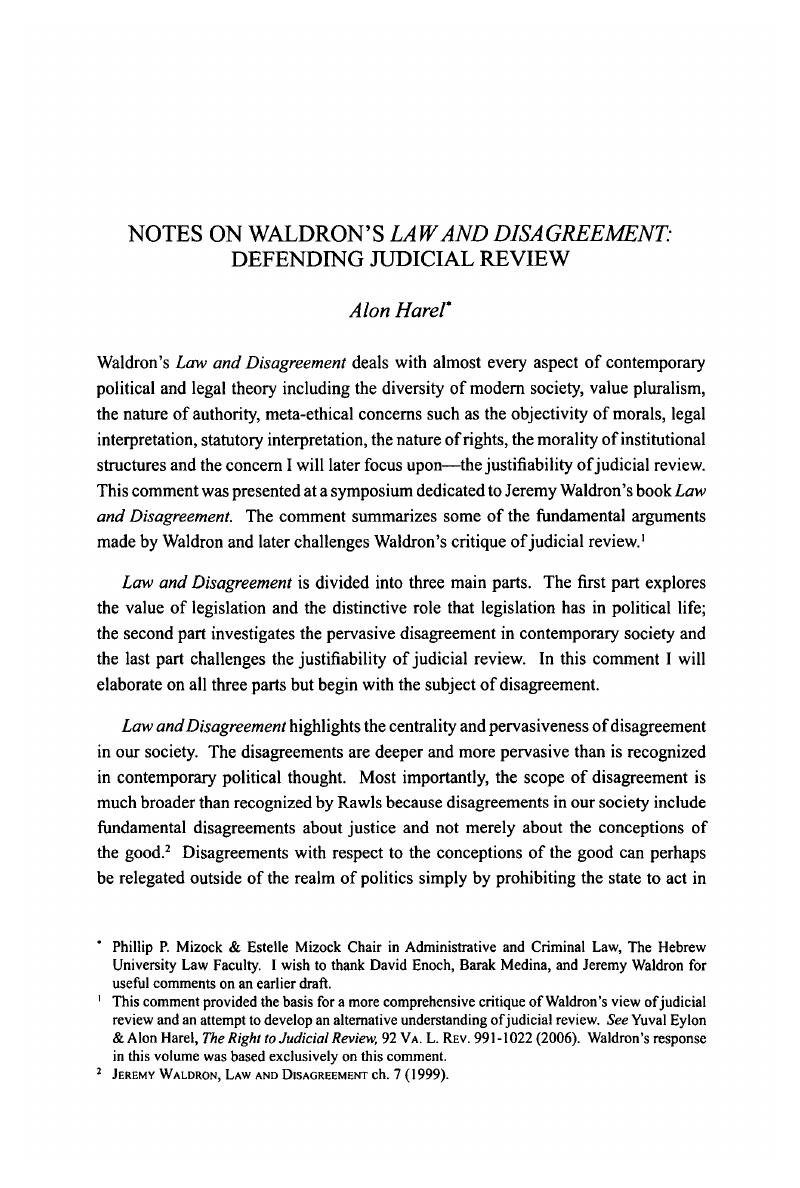Published online by Cambridge University Press: 04 July 2014

Phillip P. Mizock & Estelle Mizock Chair in Administrative and Criminal Law, The Hebrew University Law Faculty. I wish to thank David Enoch, Barak Medina, and Jeremy Waldron for useful comments on an earlier draft.
1 This comment provided the basis for a more comprehensive critique of Waldron's view of judicial review and an attempt to develop an alternative understanding of judicial review. See Eylon, Yuval & Harel, Alon, The Right to Judicial Review, 92 Va. L. Rev. 991–1022 (2006)Google Scholar. Waldron's response in this volume was based exclusively on this comment.
2 Waldron, Jeremy, Law and Disagreement ch. 7 (1999)CrossRefGoogle Scholar.
3 Id. at 11-12.
4 Id. at 73-75.
5 Id. at 29-33.
6 Id. at 142-146.
7 Id. at 144.
8 Waldron could address this possible objection by arguing that it is only elected officials who overcome disagreement deserve respect for an achievement because it is only elected officials who reflect the plurality in a meaningful praiseworthy way. Yet such a view would complicate the argument and deviate from the way the distinctive qualities of legislatures are described by Waldron.
9 On the debate concerning the constitutional revolution, see Harel, Alon, The Rule of Law in Israel: Philosophical Aspirations and Institutional Realities, in Recrafting the Rule of Law 143–160 (Dyzenhaus, David ed., 1999)Google Scholar.
10 Waldron, supra note 2, at 221-223.
11 Waldron, Jeremy, The Core of the Case Against Judicial Review, 115 Yale L.J. 1346, 1376–86 (2006)CrossRefGoogle Scholar.
12 This seems to be derived from the central status given by Waldron to the right of equal participation. See Waldron, supra note 2, at ch. 11.
13 See Harel, Alon, Rights-Based Judicial Review: A Democratic Justification, 22 L. & Phil. 247–276 (2003)Google Scholar. See also Eylon & Harel supra note 1, at section IV.
14 See also Christiano, Thomas, Waldron On Law and Disagreement, 19 L. & Phil. 513, 535–536 (2001)Google Scholar.
15 For an attempt to develop this argument, see Eylon & Harel, supra note 1.
16 Waldron, supra note 11.